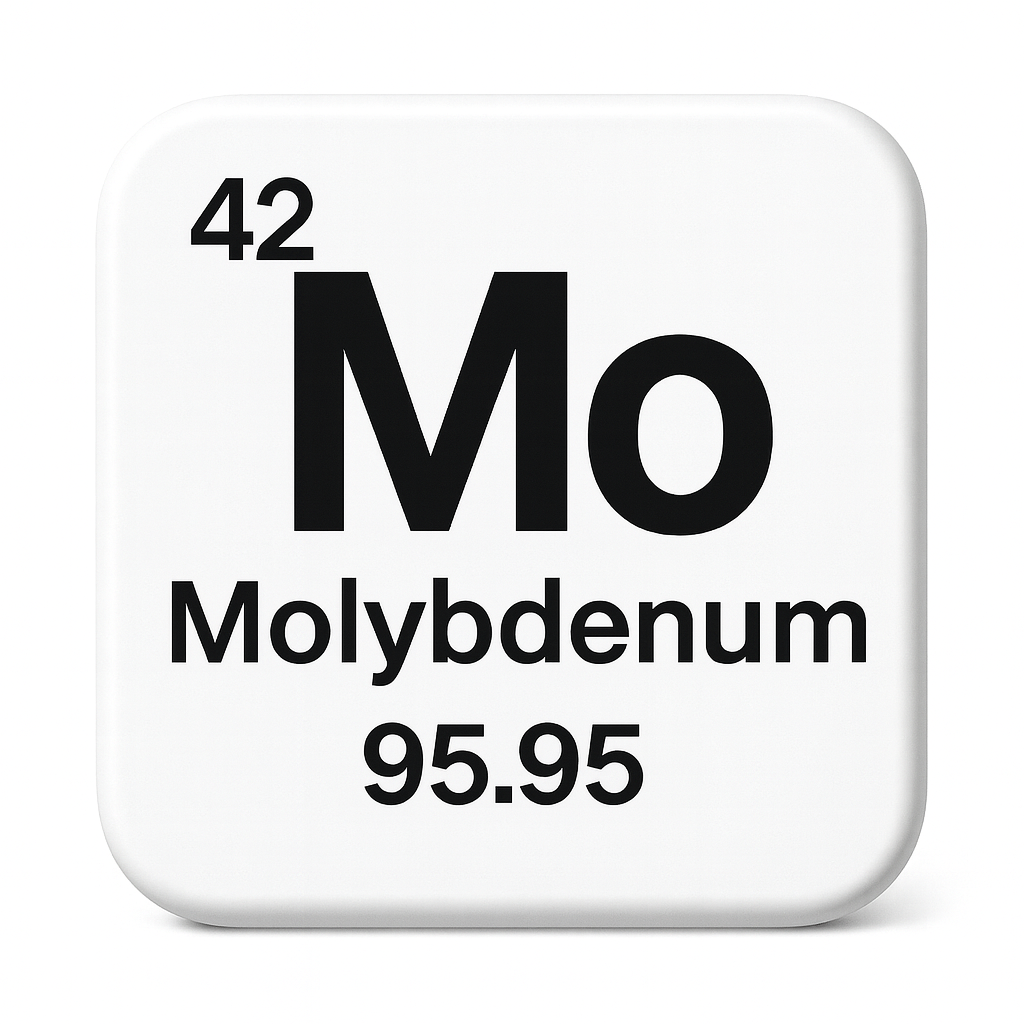Resources
Glossary
Molybdenum (Mo)
Molybdenum (chemical symbol Mo, atomic number 42) is a strong, silvery-gray metallic element valued for its ability to greatly improve the strength, hardness, and high-temperature performance of steel and other metal alloys. It is often used in small percentages (typically 0.1–1%) but has a major impact on how metals behave under stress, heat, and corrosive environments.
In the context of metallurgy and fasteners, molybdenum plays several crucial roles:
High-Temperature Strength:
Molybdenum has one of the highest melting points of all elements (4,752°F / 2,620°C). When added to steel, it helps the alloy maintain its strength and stiffness even at elevated temperatures. This makes it ideal for automotive, aerospace, and industrial fasteners that must perform under heat and load.
Improved Toughness and Ductility:
It increases the toughness of steel—its ability to deform slightly before breaking—without making it brittle. This means molybdenum-alloyed steels resist cracking or fracturing under shock or cyclic stresses.
Enhanced Corrosion Resistance:
Molybdenum improves resistance to pitting, crevice corrosion, and chemical attack, particularly in chloride or acidic environments. This is why stainless steels containing molybdenum (like 316 stainless) perform well in marine and chemical settings.
Strengthening and Hardening Agent:
It helps form carbides (molybdenum carbides) within steel, which significantly increase wear resistance and surface hardness.
Synergy with Chromium:
When combined with chromium (as in chromoly steel), molybdenum refines the steel’s grain structure, making it stronger, tougher, and more stable under high stress and temperature.
Because of these properties, molybdenum is used in fasteners, turbine blades, furnace parts, engine components, and high-strength tools. In fastener manufacturing, molybdenum-alloyed steels (like 4140 or 8740 chromoly) are common in bolts, studs, and nuts where both strength and reliability under heat are essential.

